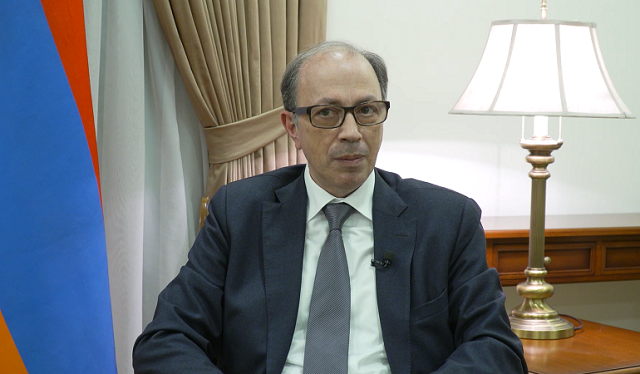Statement of Ara Aivazian, Minister of Foreign Affairs of the Republic of Armenia, at the International Conference on Women, Peace and Security
Dear Chairperson,
Excellencies,
Ladies and Gentlemen,
Read also
Allow me to start with extending my heartfelt congratulations to the Government and people of Vietnam for hosting this important International Conference.
This year, we mark the 20th anniversary of the landmark UN Security Council Resolution 1325, which accelerated political participation and economic empowerment of women in the context of peacebuilding, conflict-prevention and conflict resolution.
It is our deepest conviction that women do have a powerful role in terms of driving change towards peace, and that efforts related to security can be much more sustainable with women as equal partners in conflict prevention, settlement and rehabilitation efforts, as well as in upholding sustainable peace.
Armenia, as a member of the Human Rights Council, has highlighted, among its commitments the implementation of the National Action Plan under the UN Security Council Resolution 1325 Women, Peace and Security agenda, considering it instrumental in terms of protecting the women living in conflict zones and ensuring their active contribution to peacebuilding and post-conflict reconstruction and rehabilitation.
Taking into account that the protection and promotion of human rights and fundamental freedoms, gender equality, as well as ensuring the active role of women in all phases of the Nagorno-Karabakh conflict are among Armenian’s priorities, the Government of Armenia approved the first National Action Plan for 2019-2021 and implementation timetable for fulfilment of provisions of the UNSCR Women, Peace and Security in February 2019. Thus, Armenia became the 80th UN member state to have adopted a 1325 National Action Plan.
The recent aggression against the people of Nagorno-Karabakh perpetrated by Azerbaijan with the full political and military support of Turkey and involvement of Turkish-sponsored foriegn terrorist fighters has put the lives of 150 thousand people of Artsakh, including many women and girls, under existential threat and has made the issue of protection of the affected population urgent.
Perpetrated amidst the COVID-19 pandemic, Azerbaijan’s unlawful, indiscriminate and disproportionate military attacks, shelling and bombardment have heavily affected the region’s critical civilian infrastructure, including the healthcare and maternity capacities.
Thousands of displaced families face shortage of food, water and access to medical care. Today there is a necessity to implement individual socio-economic and rehabilitation programs, including socio-psychological rehabilitation for women and girls residing in the conflict affected settlements, as well as women that have been forced to move to Armenia.
Armenia, as a strong supporter of the universality of human rights and their equal, nondiscriminatory and non-selective approach, as it is emphasized in the Universal Declaration of Human Rights, underlines, that adherence to this principle is key in the context of the humanitarian response, when assistance should be provided to civilians affected by hostilities on the ground. People of Nagorno-Karabakh are a reality on the ground, and the hesitation of the presence and direct involvement of international organizations is unacceptable. Social problems of the Armenians of Artsakh and the humanitarian crisis in Artsakh must be addressed on the ground in order to ensure a speedy return to normal life.
Dear Chairperson,
Armenia continues to hold the major responsibility for ensuring the respect and protection of women’s rights and fulfilling this responsibility by ensuring the implementation of fundamental international documents on women’s rights, including the UN Convention on the Elimination of All Forms of Discrimination against Women, the Beijing Declaration and Platform for Action, Global Objectives for the 2030 Agenda for Sustainable Development and other key instruments. These instruments serve as a basis for the development of various national strategies in the field of women’s rights and gender equality.
Thank you.
MFA























































